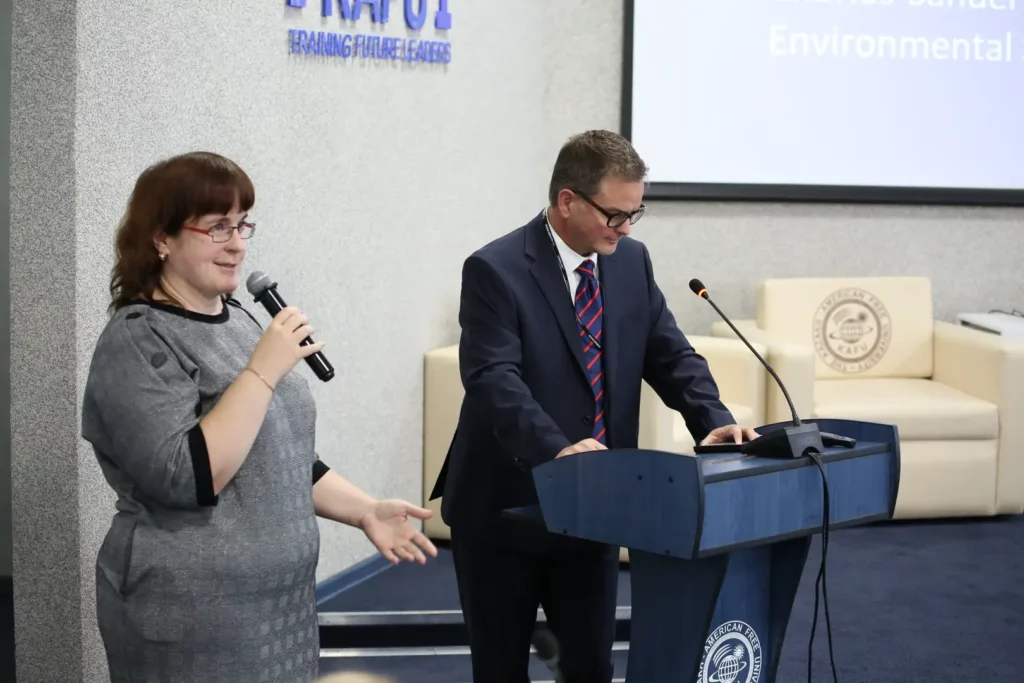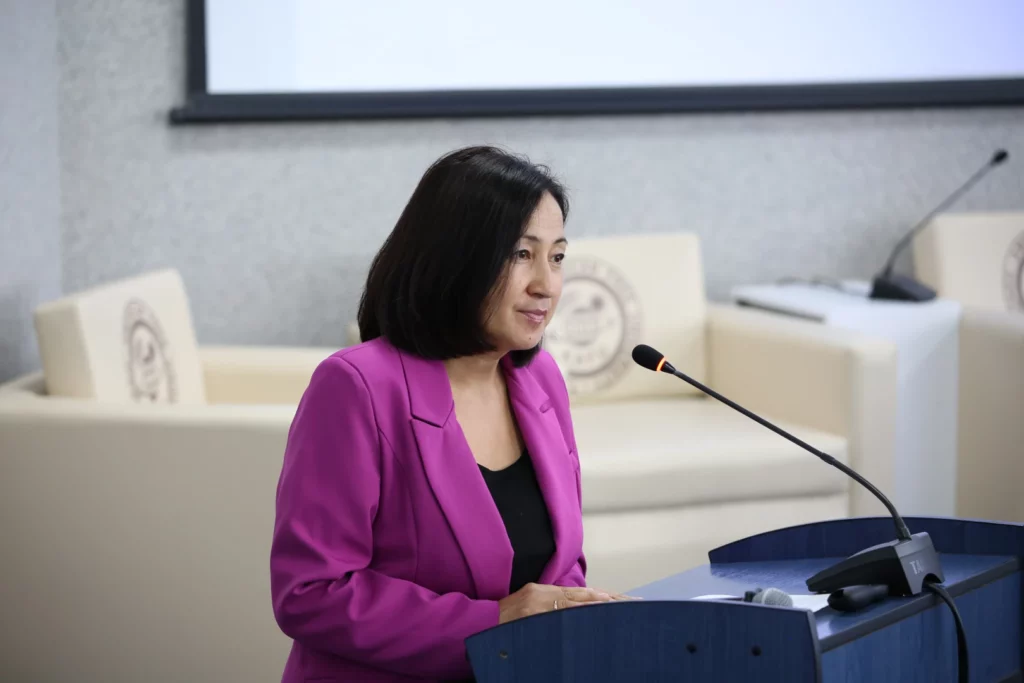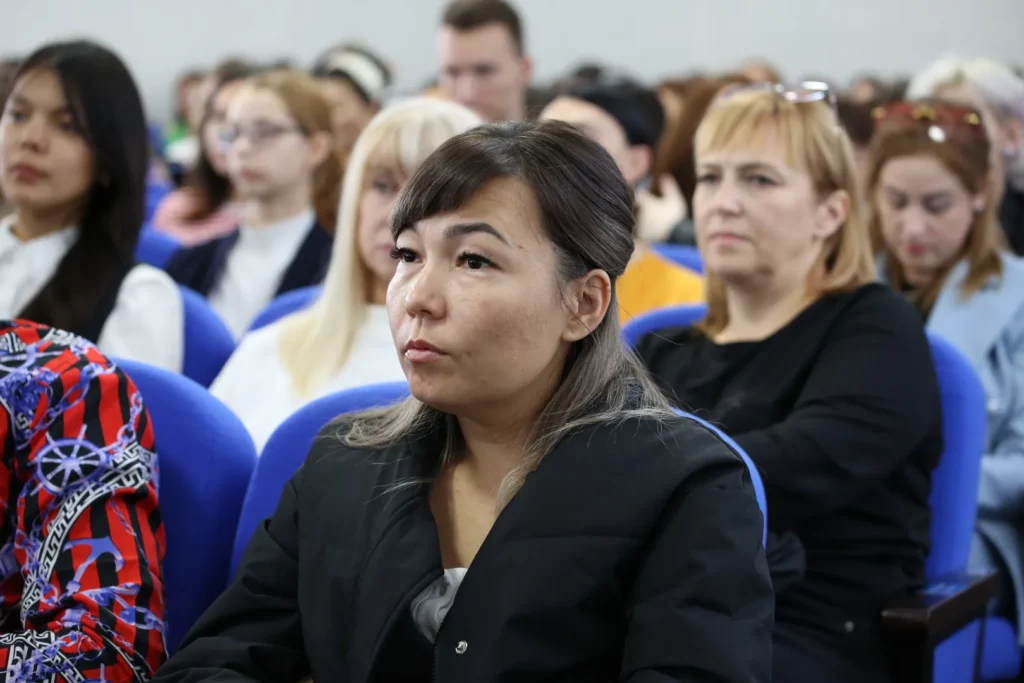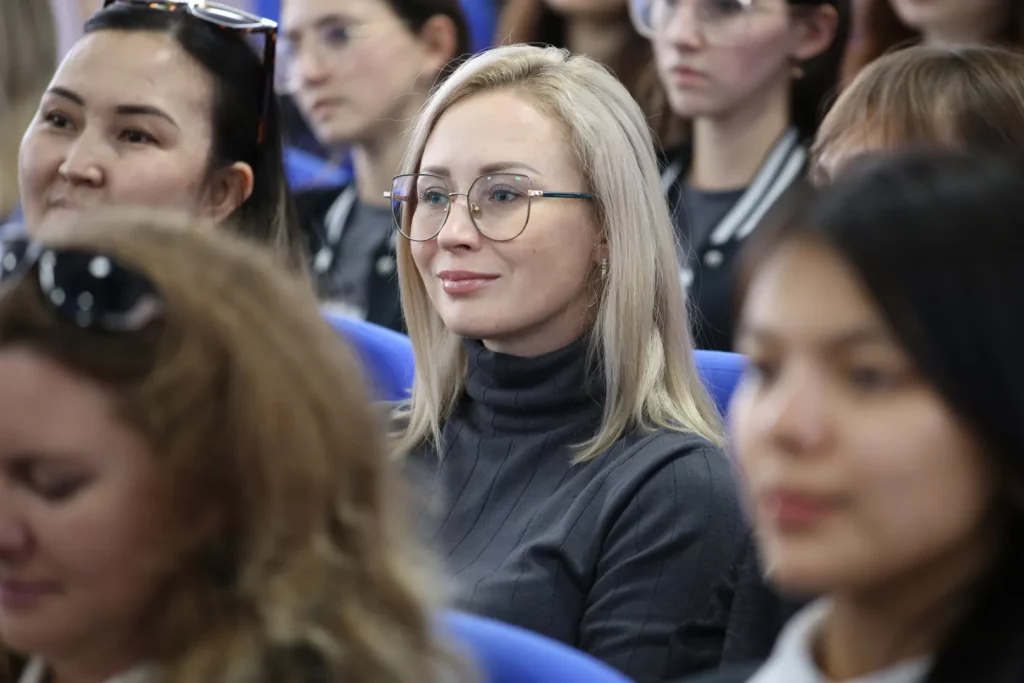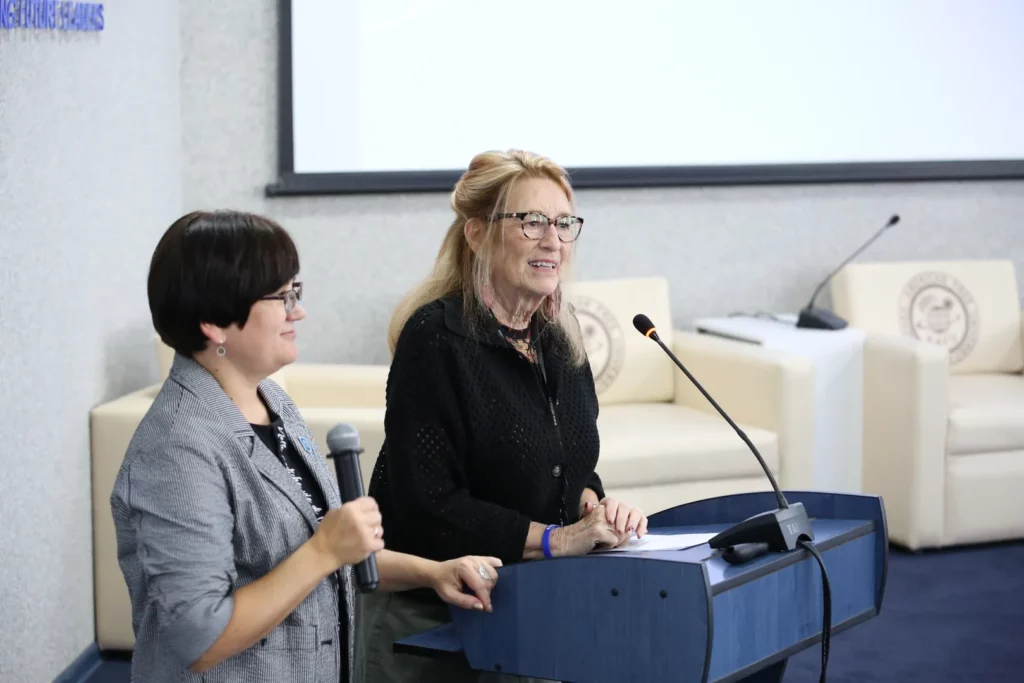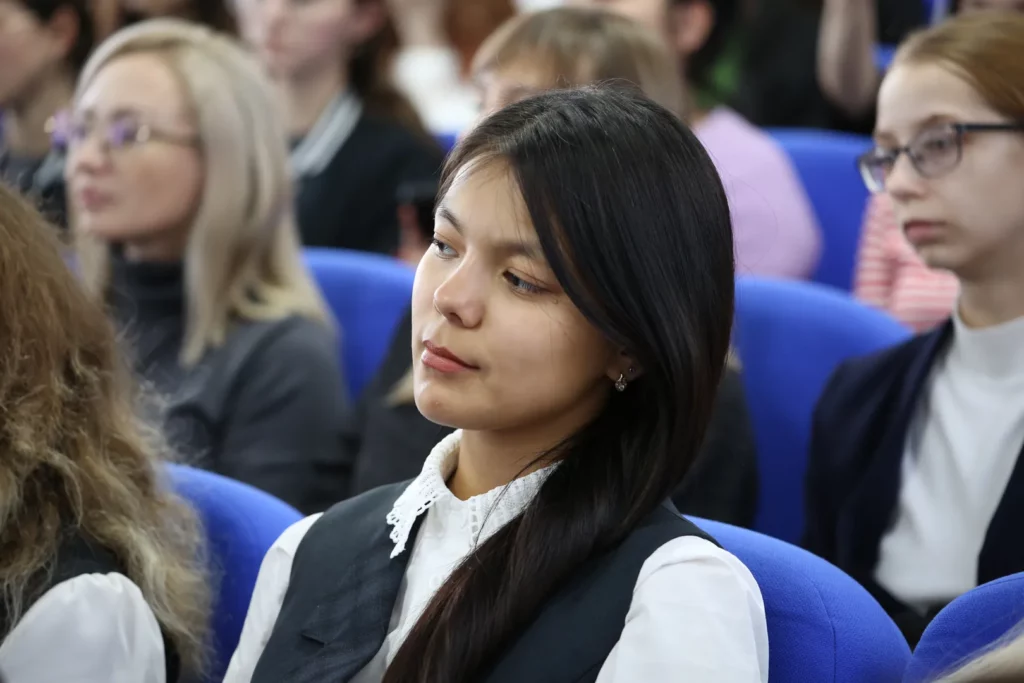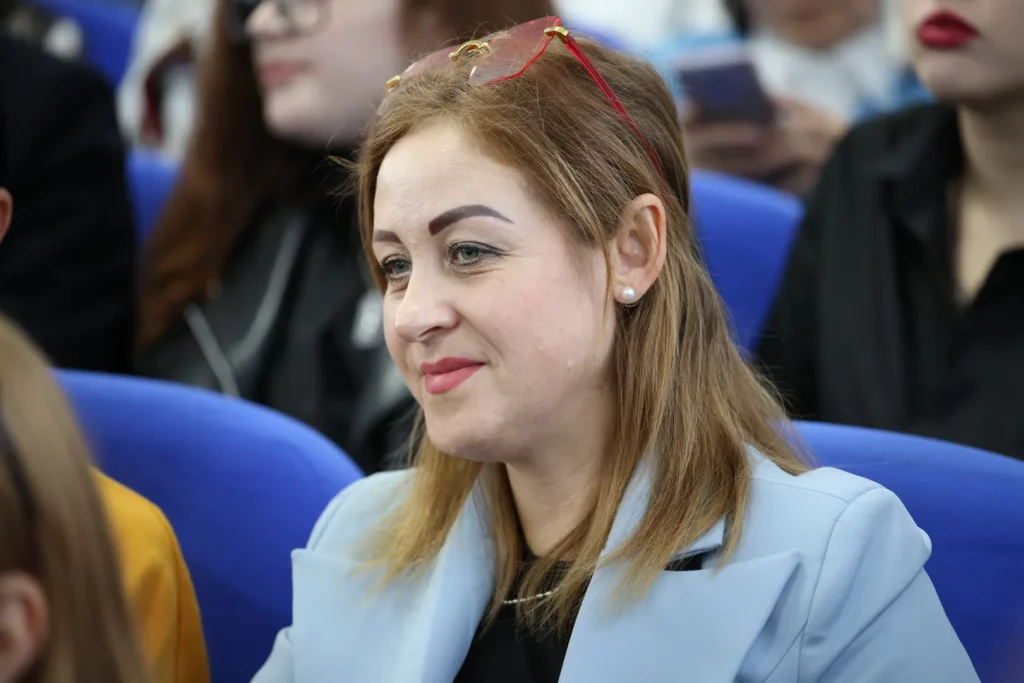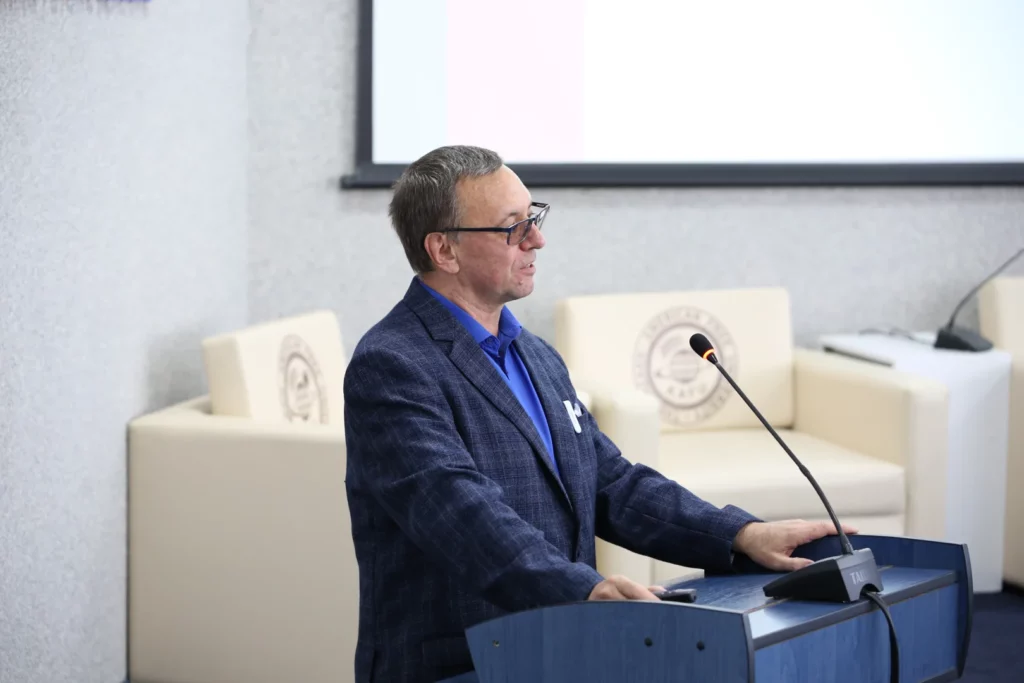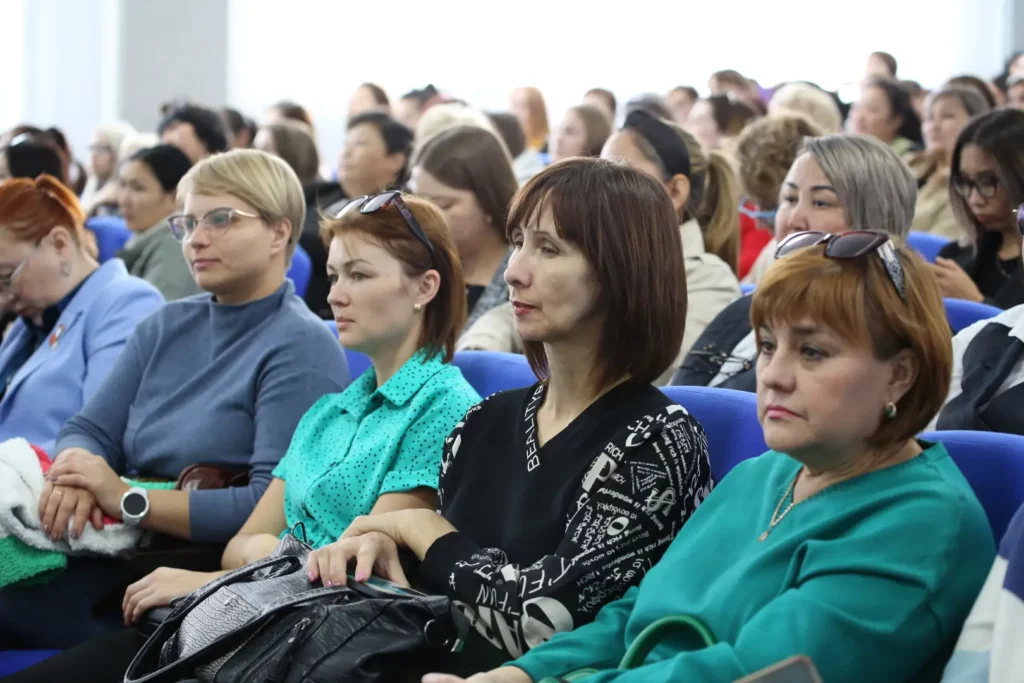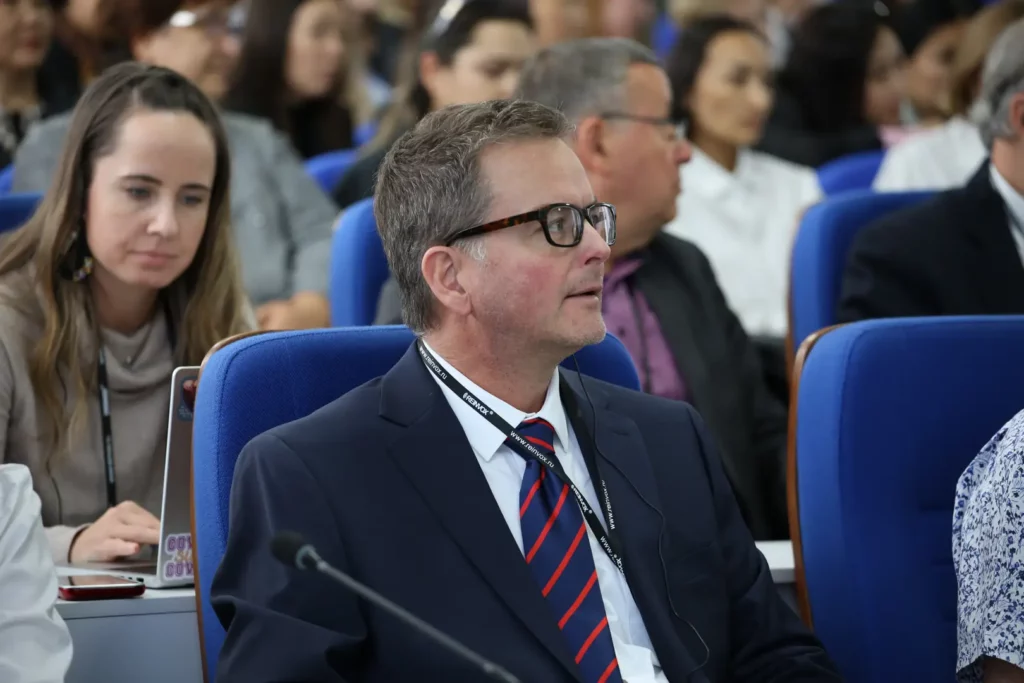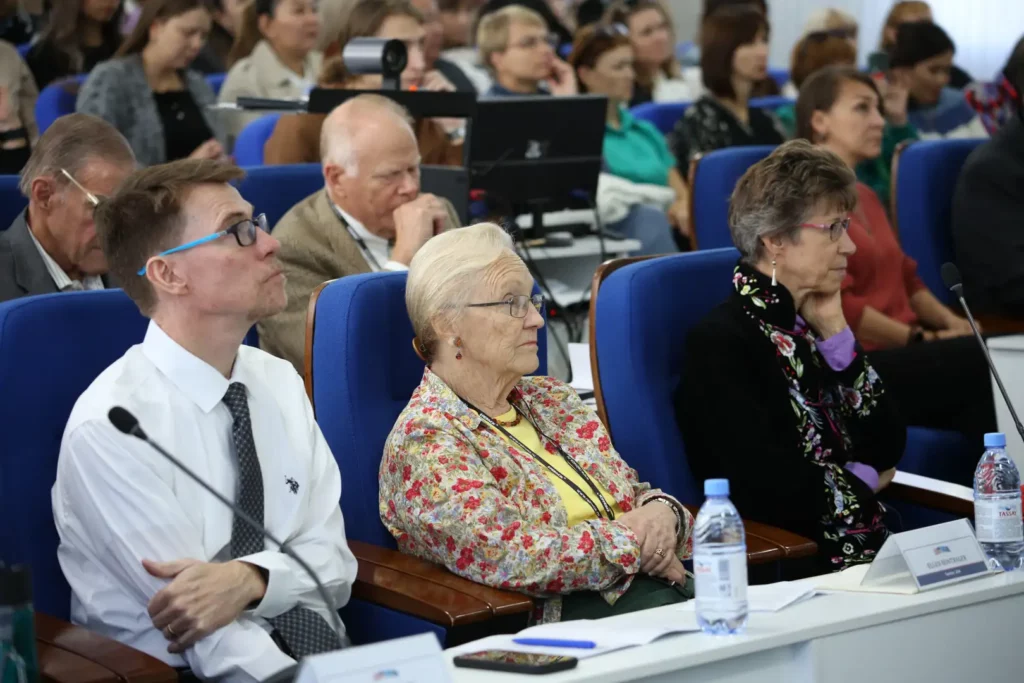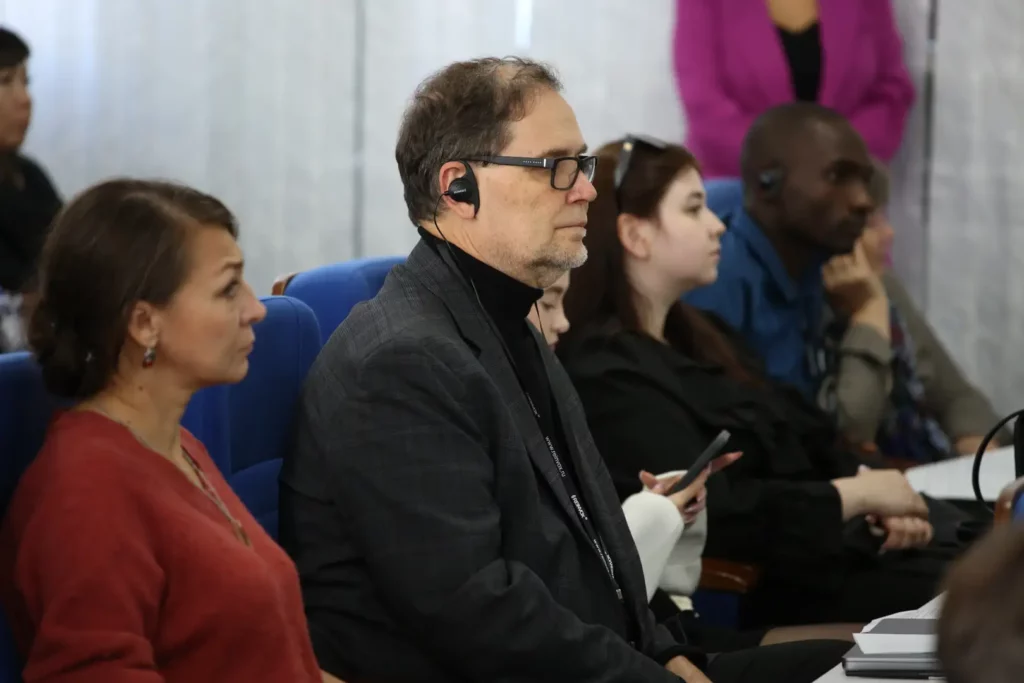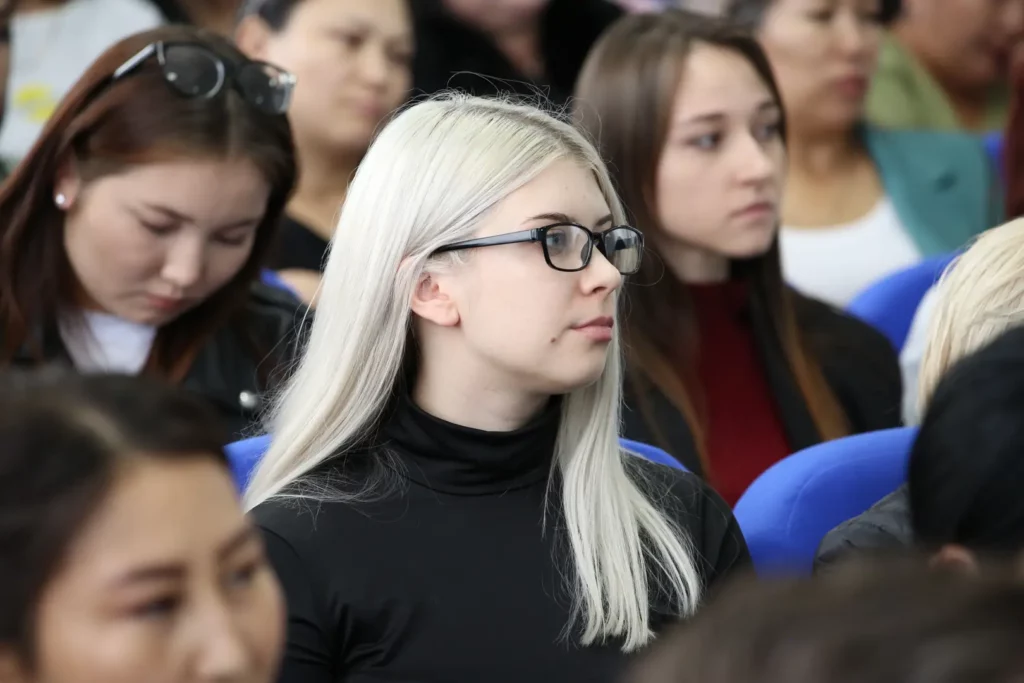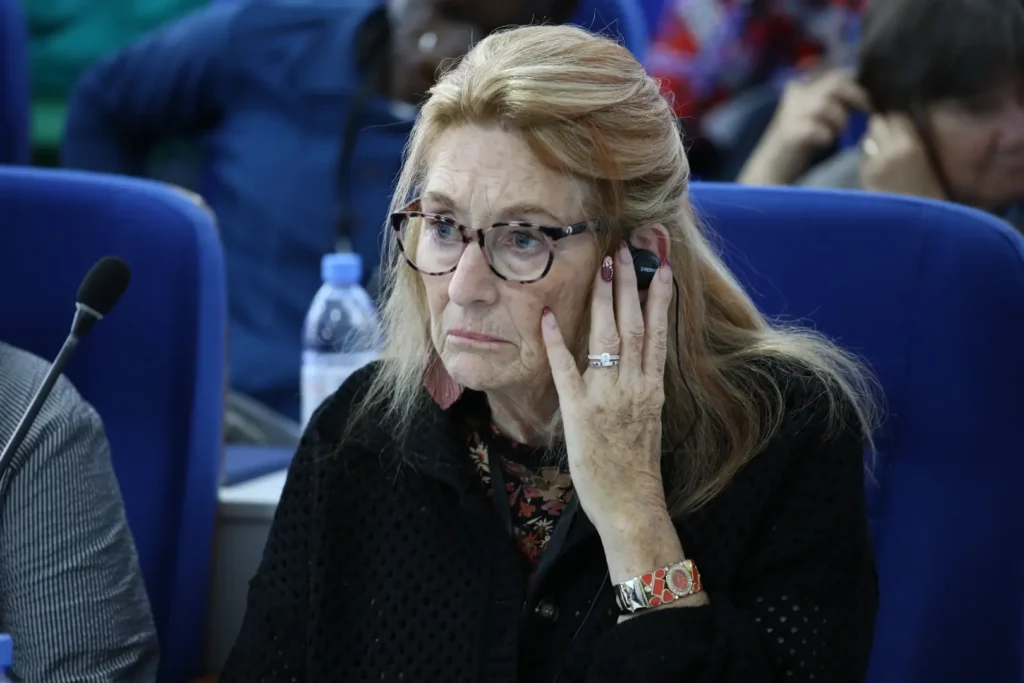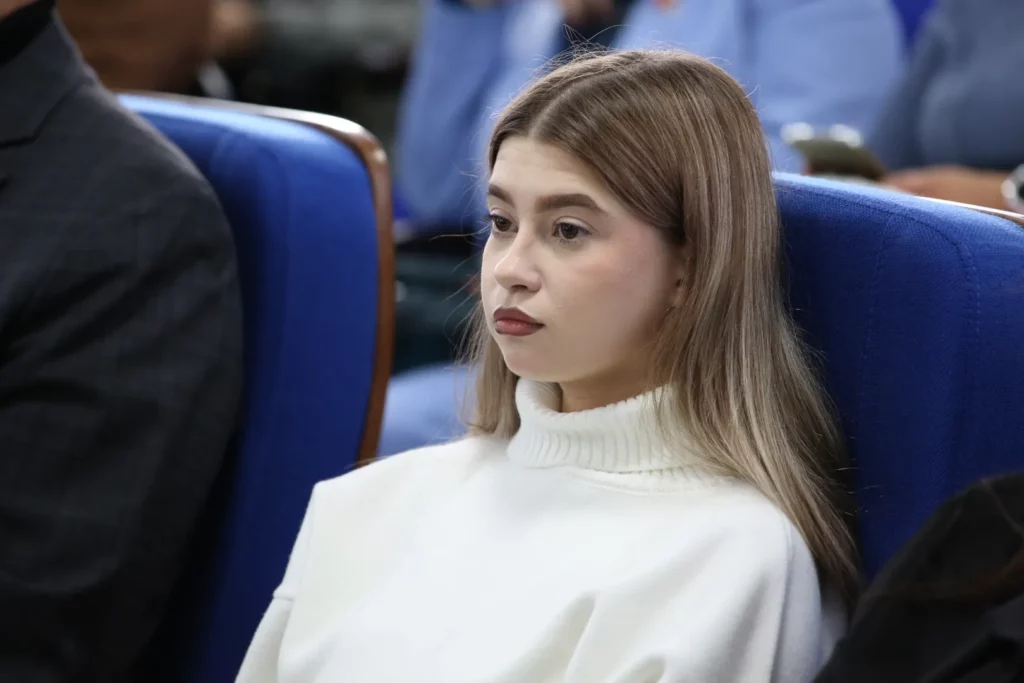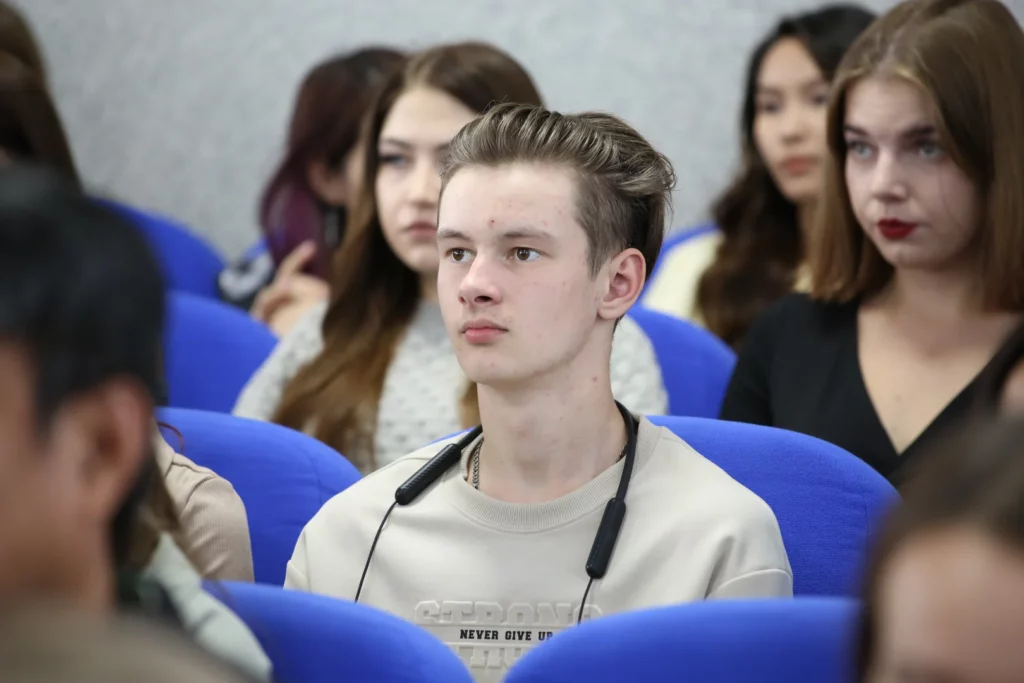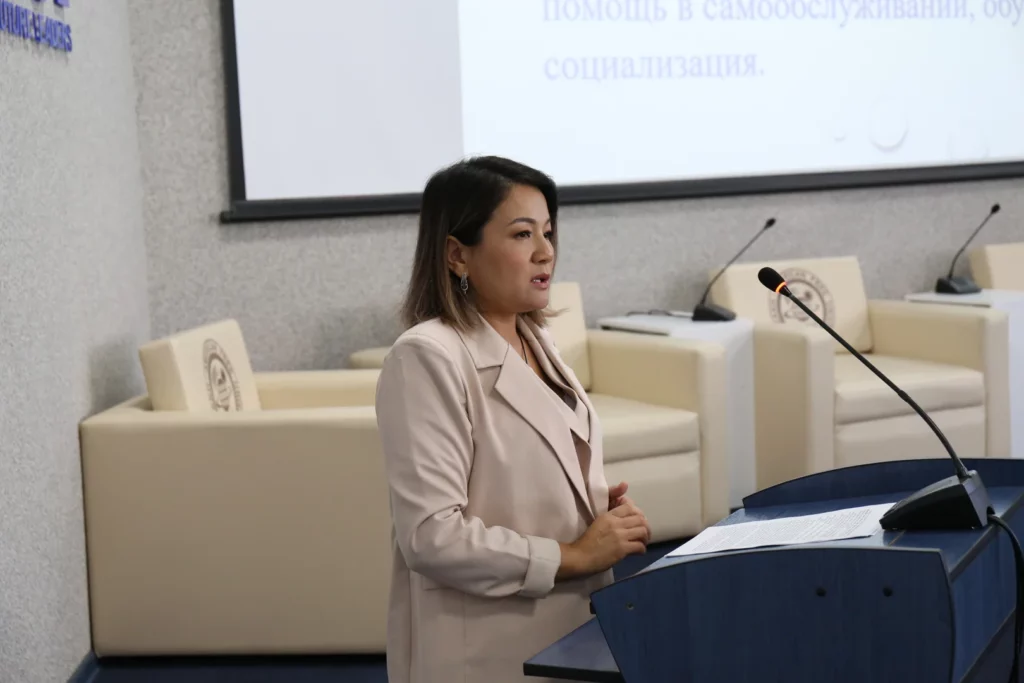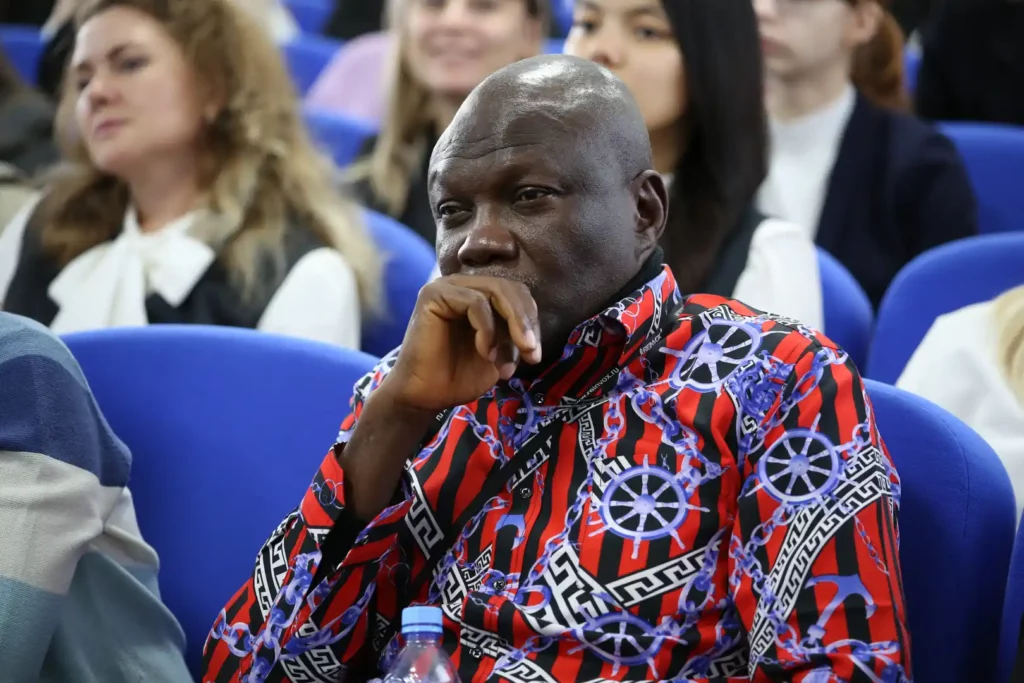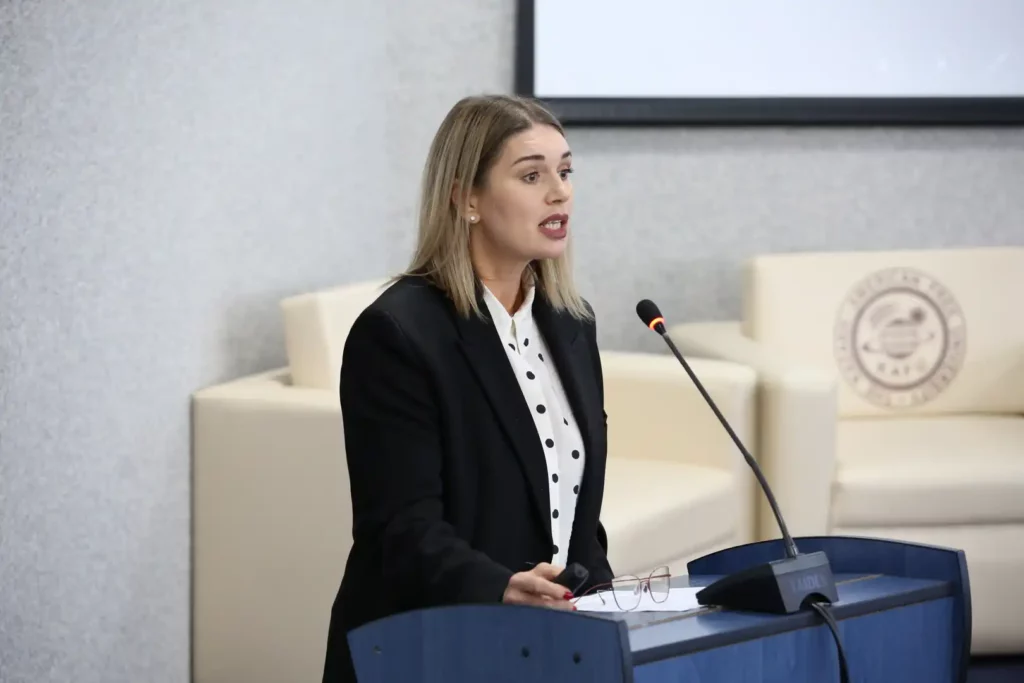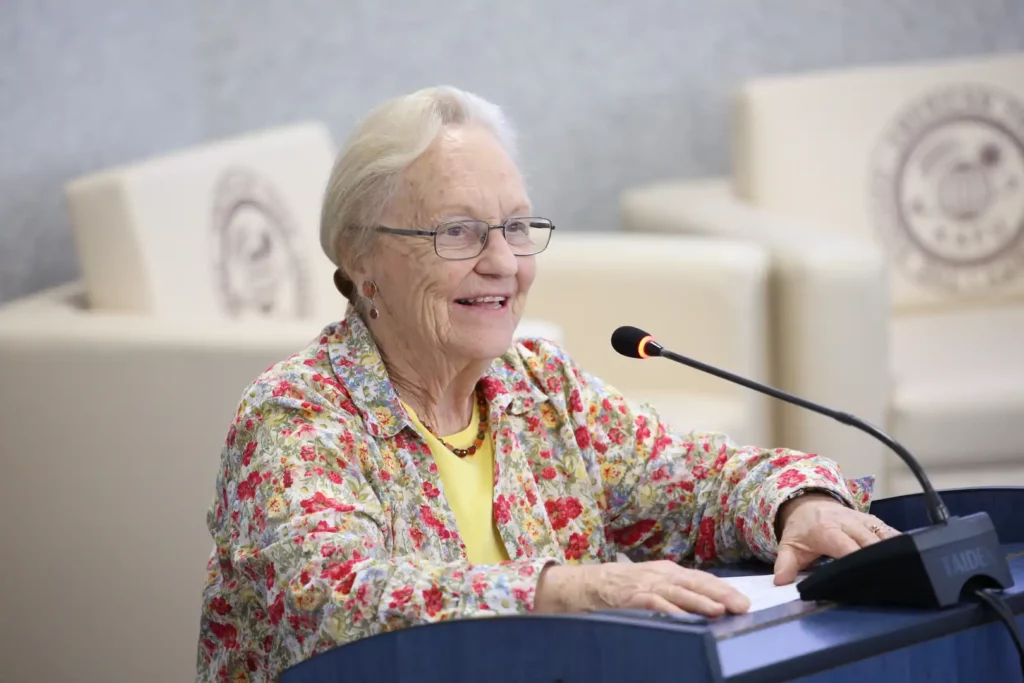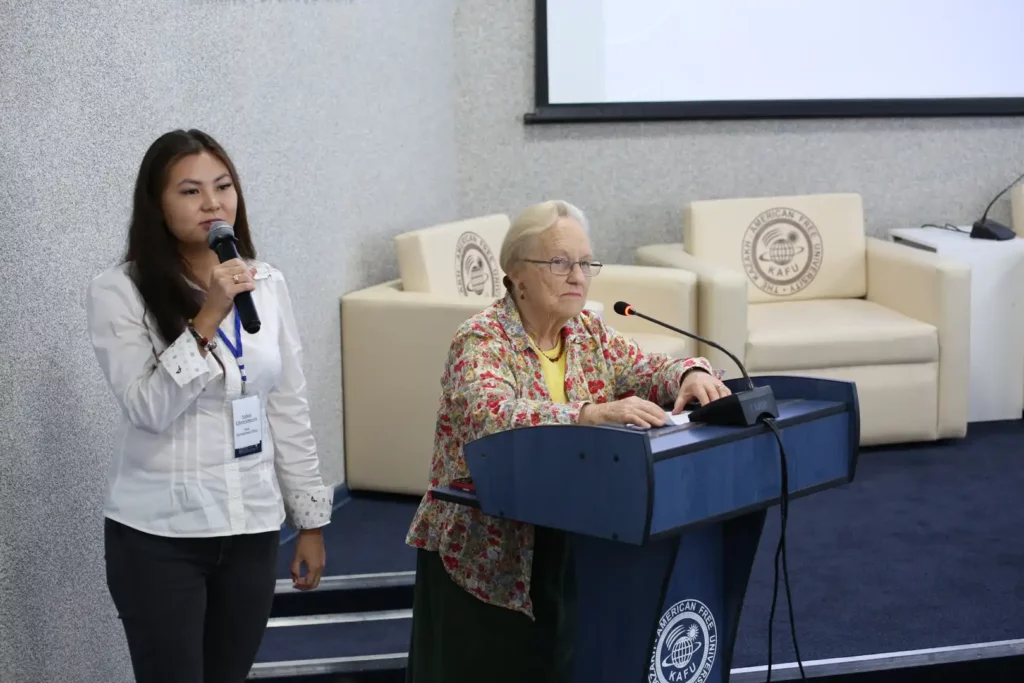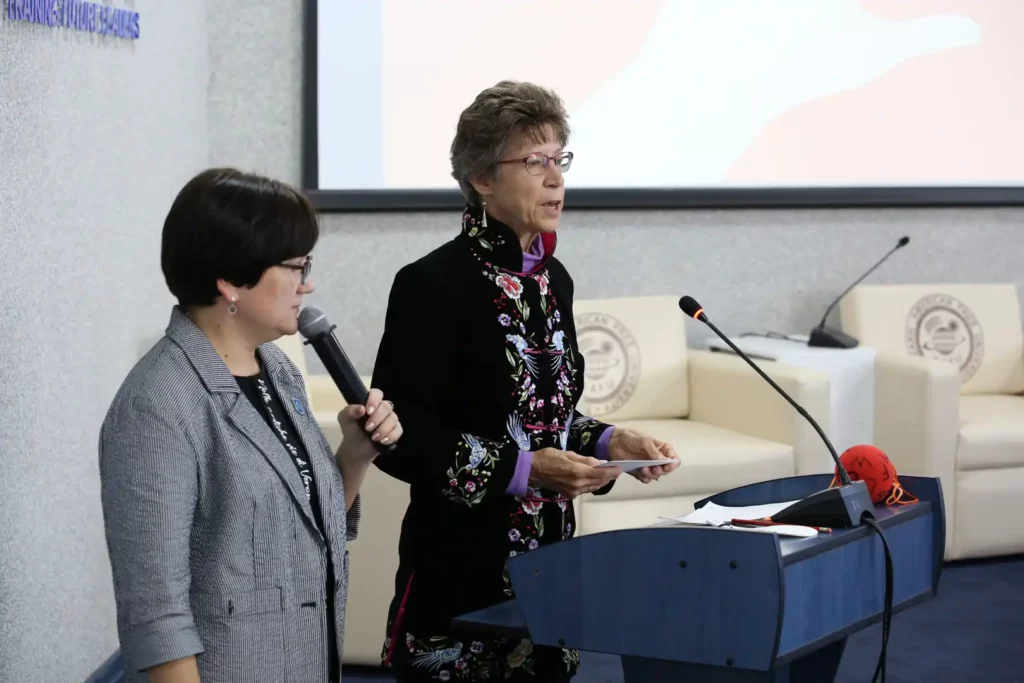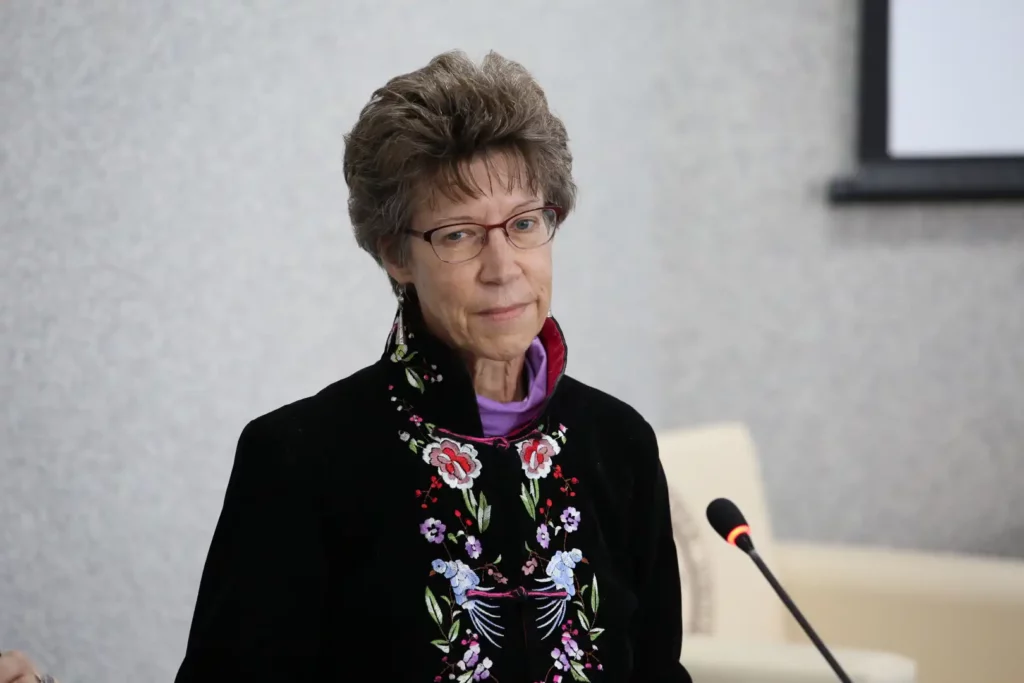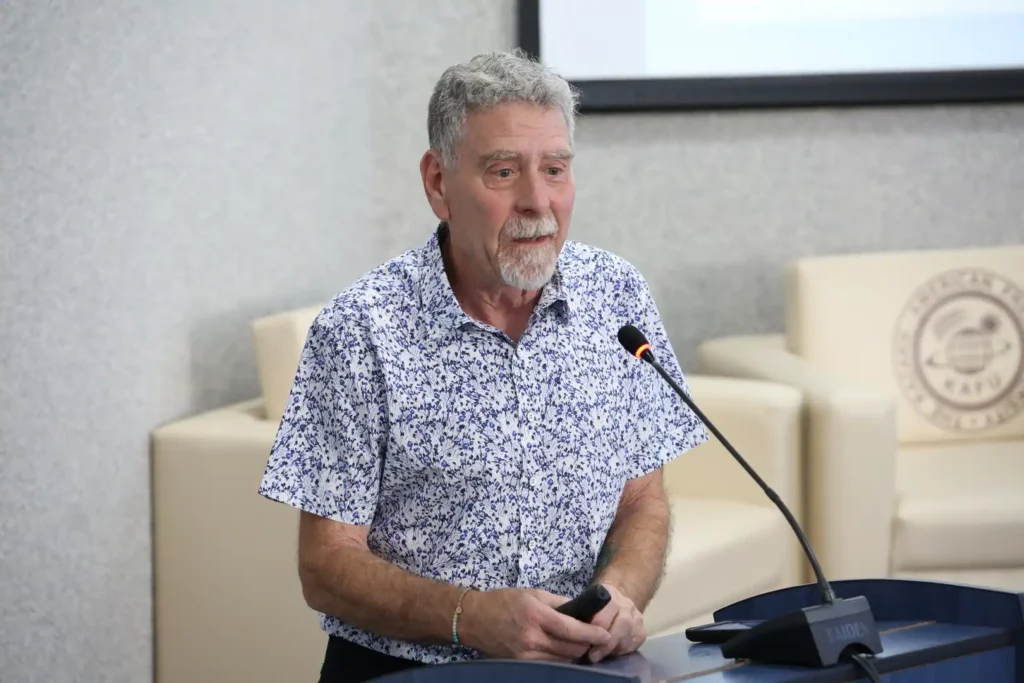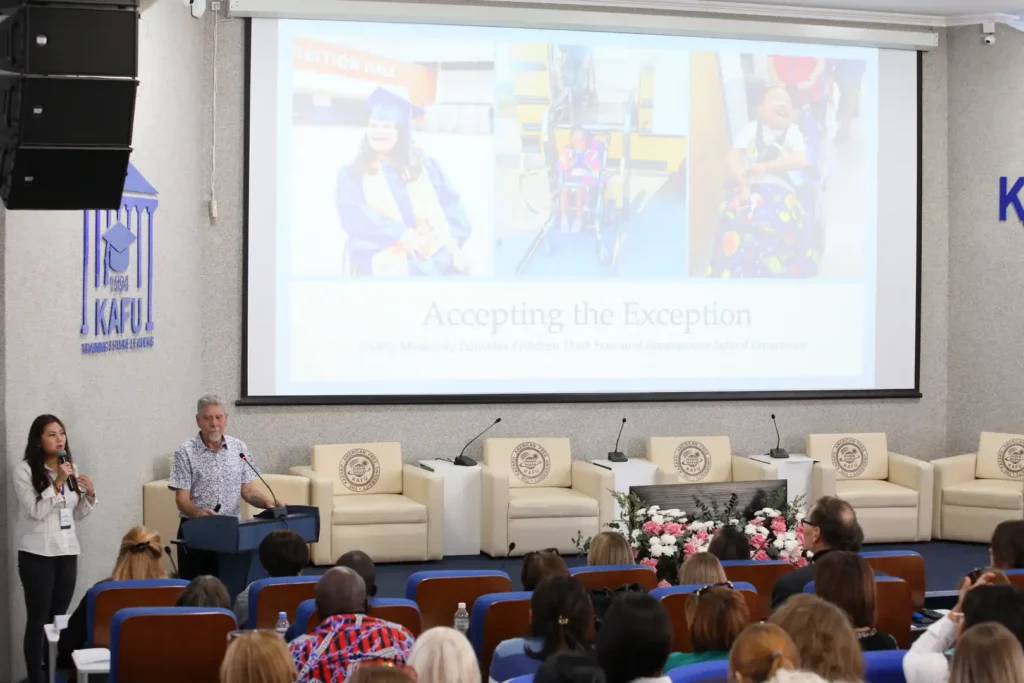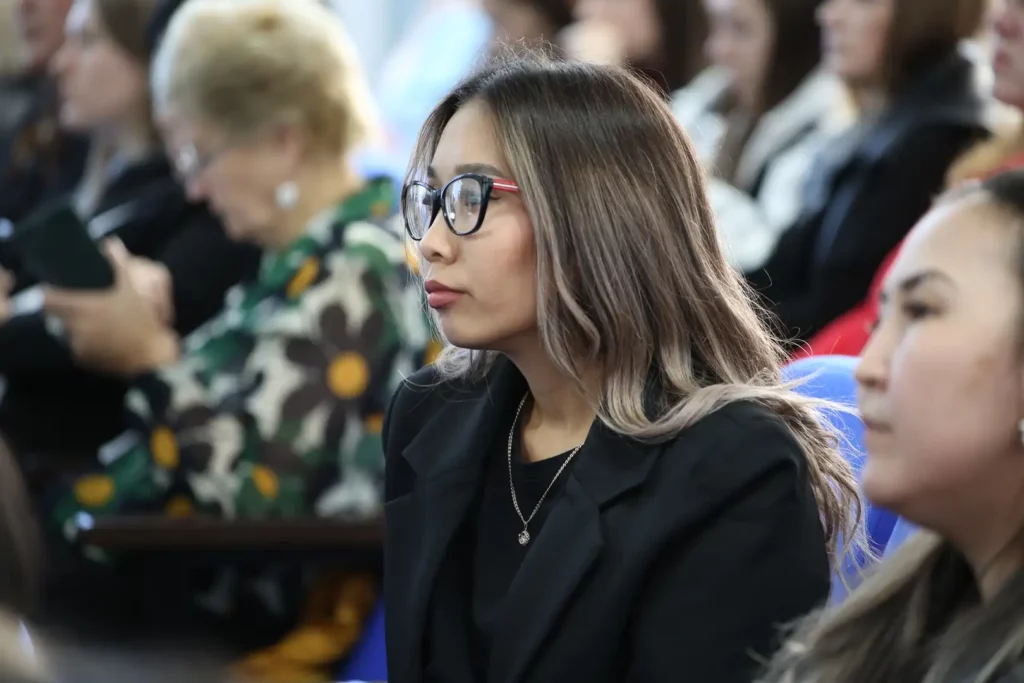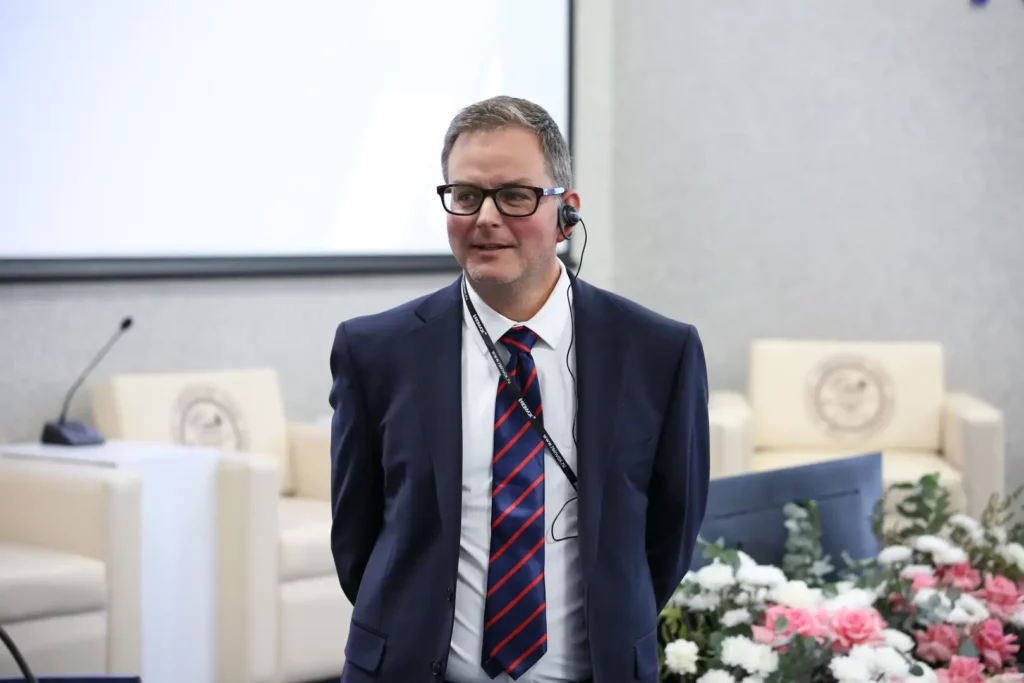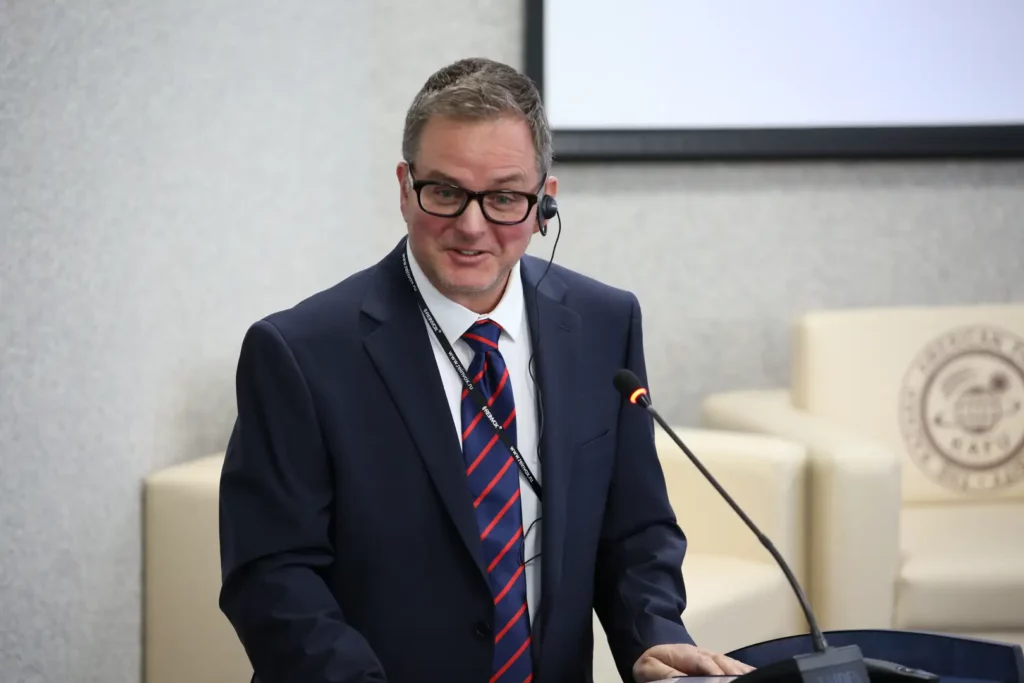30 Years of KAFU: Round table “World Practice of Inclusive Education”
On September 25, 2024, a Round Table on the topic “World Practice of Inclusive Education” was held at the Kazakh-American Free University. The event brought together foreign partners from the USA, Russia and Turkey, as well as representatives of specialized educational and correctional institutions of the East Kazakhstan region. In total, more than 20 foreign guests took part in the event, who arrived at KAFU as part of the celebration of the 30th anniversary of the university.
The round table was attended by such organizations as the special school-kindergarten “Wonderland” for children with autism spectrum disorders (ASD), the Support center for children with ASD “Asyl Miras” of the East Kazakhstan region education department, the Center for continuous and inclusive education “Dana Bala”, the Regional psychological-medical-pedagogical consultation and many others.
The event was moderated by Carol Stiles, a member of the Board of Directors of Co-Serve International (USA). She noted that the main goal of the round table was to create a productive dialogue between professionals in the field of inclusive education to exchange experiences and develop effective solutions.
The event discussed current issues in inclusive education and best international practices. In particular, the speakers shared their research and approaches to teaching children with special educational needs.
The participants’ reports covered various aspects of inclusion. Thus, Andrei A. Tyorov from Moscow City Pedagogical University presented a report on the topic “Specifics of Theoretical Approaches and Practice of Implementing Education for People with Disabilities in the Context of Inclusion, Subjectivity and Individualization.” Nazym A. Madieva from Special boarding school No. 8 spoke about the role of a teacher-educator in an inclusive environment. Foreign experts from the USA, including Shane Burgess and Ola Lundemo from the University of Arizona, discussed the issue of perceiving disability as an opportunity, not a barrier. Ronnie McKay presented the American experience of home schooling children with special needs, and Mike Pugsley shared his vision of providing appropriate education to children with special medical needs.
The round table ended with an active discussion of ways to improve inclusive education at the international level. All participants noted the importance of such events for the exchange of knowledge and practices, and expressed hope for further cooperation.
The event became a significant platform for discussing current issues of inclusive education, during which specific recommendations were proposed for improving work with children with special educational needs.
